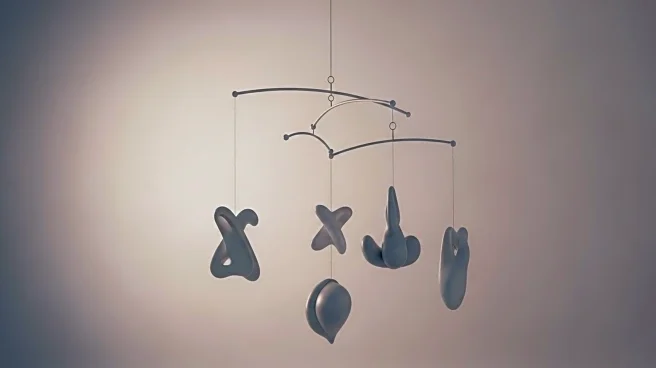What's Happening?
The film 'If I Had Legs I'd Kick You,' directed by Mary Bronstein and starring Rose Byrne, delves into the intense challenges of modern motherhood. The story follows Linda, a therapist and mother, as she navigates a series of overwhelming personal and professional crises. Her daughter suffers from a severe medical condition, her husband is largely absent, and her clients are in constant turmoil. The film portrays Linda's life as a relentless series of stress-inducing events, including a disastrous home incident and a chaotic motel stay. The narrative is described as a 'nonstop panic attack,' capturing the essence of maternal anxiety with a dark comedic tone. The film premiered at Sundance and has been likened to 'Uncut Gems for moms,' highlighting its intense and unrelenting portrayal of motherhood.
Why It's Important?
The film's exploration of maternal anxiety and the pressures of modern motherhood is significant as it sheds light on the often unspoken struggles faced by many women. By portraying these challenges in a raw and unfiltered manner, the film contributes to a broader conversation about mental health and the societal expectations placed on mothers. It underscores the need for greater support systems and understanding of the complexities involved in parenting. The film's unique approach, blending dark humor with intense drama, offers a fresh perspective on the emotional and psychological toll of motherhood, potentially resonating with audiences and sparking discussions on the need for change in societal attitudes towards parenting.
What's Next?
Following its premiere, 'If I Had Legs I'd Kick You' is expected to continue generating discussions around the themes of maternal anxiety and the pressures of modern motherhood. The film may influence future cinematic portrayals of parenting, encouraging filmmakers to explore similar themes with authenticity and depth. Additionally, it could inspire conversations among audiences and critics about the need for improved mental health support for parents. As the film gains traction, it may also lead to increased awareness and advocacy for policies that address the challenges faced by mothers, potentially impacting public discourse and policy-making in the realm of family support and mental health.
Beyond the Headlines
The film's portrayal of maternal anxiety and the relentless pressures of motherhood raises important ethical and cultural questions about societal expectations and the support systems available to parents. It challenges viewers to consider the impact of these pressures on mental health and family dynamics, highlighting the need for a cultural shift towards more empathetic and supportive approaches to parenting. The film's dark comedic tone also invites reflection on the ways humor can be used to address serious issues, offering a cathartic experience for audiences while prompting deeper consideration of the realities faced by mothers.










